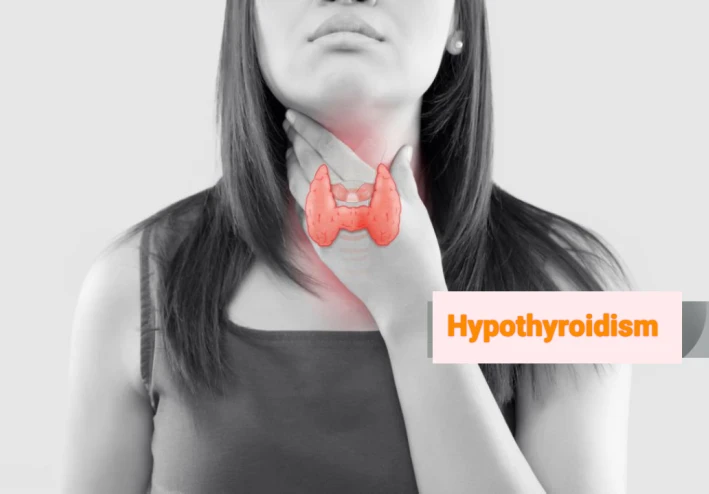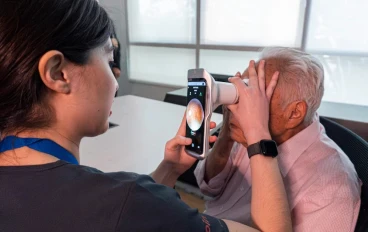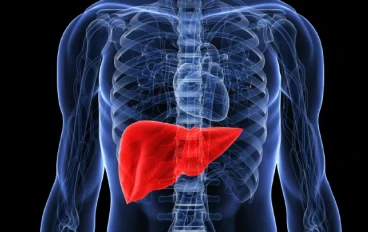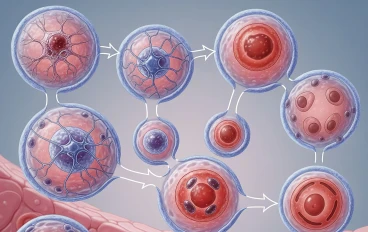
Hypothyroidism (underactive thyroid): symptoms and causes
Hypothyroidism (underactive thyroid): symptoms and causes
Hypothyroidism, also known as an underactive thyroid, is a common endocrine disorder that affects millions of people worldwide This occurs when the thyroid gland fails to produce sufficient amount of thyroid hormone, which plays an important role in regulating the body's metabolism If left untreated, hypothyroidism may have a series of health complications.complications This article examines the major symptoms, causes and underlying mechanisms of this condition.
What is hypothyroidism?
The thyroid gland is a small, butterfly -shaped gland located in front of the neck. It produces two essential hormones: thyroxin (T4) and triadothyronine (T3) These hormones affect almost every cell in the body by controlling metabolism, body temperature, heart rate and energy production. When the thyroid does not produce enough hormones, the body's metabolic processes slow down, causing hypothyroidism.
Common symptoms of hypothyroidism Symptoms of hypothyroidism can be mild, fruitless, or develop gradually, which can make the situation easier to ignore in its early stages. However, since hormone deficiency becomes more severe, symptoms can be sharper.
The most common symptoms:
Fatigue: Constant fatigue despite sufficient sleep.
Weight gain: unexplained weight gain due to slowing metabolism.
Cold intolerance: abnormally cooling, especially in the peak.
Dry skin and hair: Reduce sweating and slow skin cell turnover.
Constipation: Slow digestive procedures. Depression or low mood.
Memory problems and difficulty focusing ("brain fog").
Puffy face and rage.
Menstruation irregularity or infertility. Muscleweakness and joint hardness.
Slow heart rate (Bradycardia).
In children, hypothyroidism can also delay and delay puberty.
What is the cause of hypothyroidism?
There are many possible causes of an underactive thyroid. The most common are: 1. Autoimmune Disease - Hashimoto's Thyroiditis Hypothyroidism is the main cause of hypothyroidism in developed countries, an autoimmune disorder where the body's immune system attacks the thyroid gland, gradually destroys its ability to produce hormones.
2. Iodine deficiency Iodine is necessary for thyroid hormone production. Iodine decrease, is more common in some developing areas, can give birth to hypothyroidism and goiter.
3. Thyroid surgery or radiation therapy Thyroid (total or partial thyroidctomy) or surgical removal of radiation treatment for neck cancer can disrupt thyroid hormone production.
4. Medicines Some drugs may interfere with thyroid hormone production, including: Lithium (used for bipolar disorder) AMIODARONE (Used for heart rhythm problems) Interferon (used for hepatitis or cancer)
5. Congenital hypothyroidism Some individuals are born with an underactive thyroid or a missing thyroid gland.
6. Pituitary gland disorder Rarely, the problem can be a lie with the pituitary gland, which
risk Some individuals are at greater risk of developing hypothyroidism:
Women, especially over 60 years of age A person with family history of thyroid disease Patients with autoimmune (eg, type 1 diabetes, celiac disease) Anchor People coming in contact with radiation in the neck area
Diagnosis and next stage If hypothyroidism is suspected, a simple blood test measuring TSH and free T4 levels may confirm the diagnosis. The level of high TSH and low T4 is a sign of an underactive thyroid. Initial diagnosis and proper management - usually through daily levothyroxin hormone replacement - can lead to complete symptoms solution in most patients.
conclusion
Hypothyroidism is a manageable but often weak condition that affects metabolism and overall welfare. Identifying its initial signals and understanding possible causes can lead to timely treatment and prevent long -term complications. If you are experiencing persistent fatigue, weight changes, or other related symptoms, consult your healthcare provider for thyroid function testing.





























